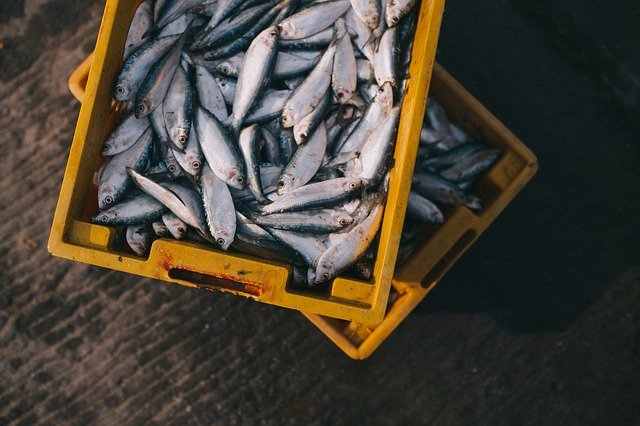
Fish Market Waste Management 🐟
Fish Market Waste Management 🐟: Improperly disposed of fish from markets poses a huge risk to the environment. Additionally, it also threatens public health and safety. So, it is a must that fish waste gets properly dealt with in the best and most sustainable way.
In other words, if you belong to the club of fisheries owners, you must know the best waste management practice to properly dispose of fish waste. Read on to learn more about this topic.
>>Download Now: Free PDF Business Owners Guide To General Waste Bin Services
A Bit About Waster
Before we continue with the discussion on fish market waste management, let me share with you more information about Waster.
We here at Waster provide you with innovative solutions for you and your business’s waste management and recycling needs. Furthermore, we provide flexible, 30-day contracts instead of the typical lock-in contracts, which proves to be better.
Click on the blue button to learn more.
READ: Solid Waste Management In Hospital 🏥
Reviewing Fish Market Waste Management
Sadly, people nowadays waste valuable resources. It can be due to a number of reasons, one of which includes not knowing that there is still value left in the used product. This is especially true for fish waste generated in markets. Fish waste in the market can become a nuisance to the market, people, aquatic life, and the environment if left unchecked. Quite frankly, it is an overlooked resource that can be utilised into different kinds of products.
In fact, you can transform it into the following products: compost, fertilizers, and fish oil. So, it is quite intriguing for me that the byproducts of fish waste are not marketed enough.
Not only does use of fish waste byproducts help the economy, but it also helps the environment. Too many nowadays put fish in landfills or dispose of them in the sea. Doing that damages the environment and wastes the opportunity of creating sustainable products.
Fish Bins Australia
You can get a fish bin in Australia to deal with your fish waste for better waste management in your area. You can include the following fish wastes in the fish bin (courtesy of Ocean2earth):
- Offal
- Fish
- Abalone
- Sea Urchins
- Oysters
- Mussels
- Seaweed
This can also include other sea creatures. And a few more reminders: remove the plastic encompassing the fish waste. With that, you can add recycling and general waste bins to accompany with your fish market waste management.
You also have the option of getting a food waste/organic waste bin, as you can include discarded fish meat in there.
Types Of Waste Generated In Fish Markets
For us to truly better understand fish market waste management, we should learn the types of waste produced there.
First, we will discuss the fish waste itself. Naturally, fish waste is anything produced from the fish carcass. This includes its head, frames, and offal.
You may not know what fish offal is, beforehand. What is fish offal? Basically, fish offal means then innards of a fish. Or, in other words, the viscera of the fish. Additionally, it also includes the head and other body parts of the fish not within the definition of innards, entrails, viscera, etc. They are taken off to prepare the product for either of the following:
- Putting In Can
- Packaging
- Eating
- Preserving
Second, the processing of the fish also produces waste. For example, the water used to clean the fish is considered as waste. Also, the detergents used to clean the place of operation is considered as waste, too.
In the next section, I will discuss with you products I mentioned a while ago: fish waste compost and fertilizers.
Fish Waste Compost And Fertilizers
All in the aquaculture sector will find composting simple and effective. Additionally, it will also transform waste into something valuable: a resource that enriches aquatic plants.
In the past, nobody knew what to do with fish waste and resorted to putting them into landfills. As I have mentioned before, that practice is bad because it releases potent greenhouse gases, such as methane, over time.
As a result, many found it better to find a way to use fish waste. And they have come up with turning fish waste into compost. Aquaculture farms greatly benefit from using fish waste compost.
Furthermore, according to the Victorian Fisheries Authority, fish market waste management in the form of turning them into compost is required.
Composting wastes is consistent with best practice environmental management and is now a condition of Environment Protection Authority Victoria (EPA) waste discharge licenses.
All composting facilities must conform to EPA and relevant State environment protection policies. The information in this Aquaculture Note is consistent with these policies.The EPA defines fish processing wastes as a prescribed industrial waste (PIW) and a composting facility which treats such material, regardless of its size, generally requires an EPA Works Approval and licence to operate. Composting facilities that treat waste generated on-site are, however, normally managed through an aquaculture farm’s existing EPA licence.
What is the prescribed waste definition? Prescribed waste means any specific dangerous or hazardous waste that needs proper handling and disposal.

Fertilizer
Fish waste in markets can also be turned into fertilizers as an effective waste management practice. According to this Q and A, anyone smallholder farmer can make their own fertilizer from fish waste. The process usually takes 3-4 weeks before completion.
The Q and A even stated that you can make fertilizers from the fish waste collected after a meal mixed with decayed grass or plants. As a result of doing this, they will acquire a chemical-free and nutrient-rich fertilizer.
This will help farmers save up on costs and use the saved money to plant more crops or buy more seeds for plants, instead.
Fish Market Waste Management: Conclusion
You – possibly as an owner of a fish market – can and should properly dispose of your fish waste for a better waste management practice. Fish waste can be turned into different byproducts useful to people.
Waster: Things You Need To Know
If you’re looking for bin services, check our waste recycling shop and find the best deals in terms of pricing and services.
Also, please call 1300 WASTER (1300 927 837), or email us at enquiries@waster.com.au if you have any further questions.
2 Comments
Leave a Reply Cancel reply

Product categories
Most Popular Posts
-
Commercial Waste Management Services: Reduce Waste Collection Costs! 🚍
-
Medical Waste Disposal: Everything You Need To Find Out In 2024! 💉
-
Rubbish Removal Sydney 2024: Better Bin Collections For Business ✅
-
Clinical Waste Disposal 2024: What To Know About Business Clinical Waste ⚕️
-
Secure Document Destruction 2024: All About Security Bins Shredding 🔒
-
Free Cardboard Recycling 2024: Can I Get Free Cardboard Collection? 📦
-
Confidential Paper Disposal Bins 2024: What You Need To Know About Shredding! 🔒
-
Recycling Bins Australia 2024: Recycling Can Boost Your Profits! ♲
-
Commercial Wheelie Bin Collection: What Businesses Need To Know In 2024 🗑️
-
Commingled Recycling 2024: Why Commingled Bin Is Key To Recycling 🍾














hi there, do you have an organics recycling service in Sydney for fish?
Hi Kate – we will email you in this regard.